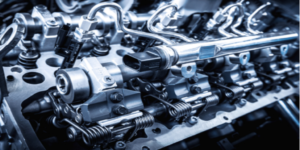Cars are immensely complex beasts to anyone not well-versed in their functions. The problem with taking road trips, long journeys, or even driving out to a distant camping spot is the risk that your car will break down in the middle of nowhere. This comes with the inevitable trouble of having to pay for a very expensive tow truck bill, before then paying for a very expensive car repair.
For obvious reasons, you want to avoid a disaster, and protecting your car’s engine is the best way to do this. We have put together a comprehensive guide to doing just that, so read on and learn the ways you can protect your car’s engine.
Premium Fuel
For cars with more modern engines, premium fuel can be a good choice for keeping your engine running smoothly. There are different levels of impurities in fuel, and that’s why fuel filters are needed – to keep the impurities out of the combustion chamber. The more impurities get in, the more your filter will need cleaning and the less efficient your engine will be, so your fuel plays a big part in the life of your engine.
Higher grades of fuel have more octane and less impurities, so the explosions in your combustion chamber are more volatile and produce more power. Plus. the lack of impurities means your filters don’t have to work as hard. This prolongs the life of your engine.
Injector Cleaner

Your fuel injectors can also build up impurities on them from the fuel you use, and every five thousand kilometers this could become more of a problem. You will likely notice your fuel economy begin to drop a bit as the injectors are more and more in need of a clean, but luckily you can buy fuel injector cleaner to handle this job.
Sold at most petrol stations, you simply add however much injector cleaner you’re instructed to add to a full tank of fuel. The additive will then clean the injectors as they work the new tank of fuel through to the engine.
Oil Checks
Checking that you have enough oil and that your oil is in good condition is fairly simple and very important, though many people don’t know how to do it. This is a problem that causes many breakdowns and write-offs, because running an engine “dry” (when it doesn’t have any oil in it) will quickly warp the piston heads due to the heat of the unlubricated engine. Within seconds, the now-ill-fitting pistons will severely damage the engine block, usually resulting in the owner needing to install a new engine.
Open your car’s bonnet, look for a loop or stick-like handle that will be jutting out of the engine, and pull on it. This should be a long, thin piece of metal with two small divots on the bottom of it. Wipe off the stick with a rag, and push it back into the place you pulled it from, then pull it out again. Check where the oil line is, and as long as it’s between the divots your engine is good to go. As an aside, if the oil on the stick is black, it’s time for an oil change, and a mobile mechanic in Brisbane can make short work of that job for you.
These tips can all help you to maintain your car properly, and prolong its life. Remember to check your oil weekly, as if you spring a leak you’ll be surprised at how quickly you can begin to run dry.








